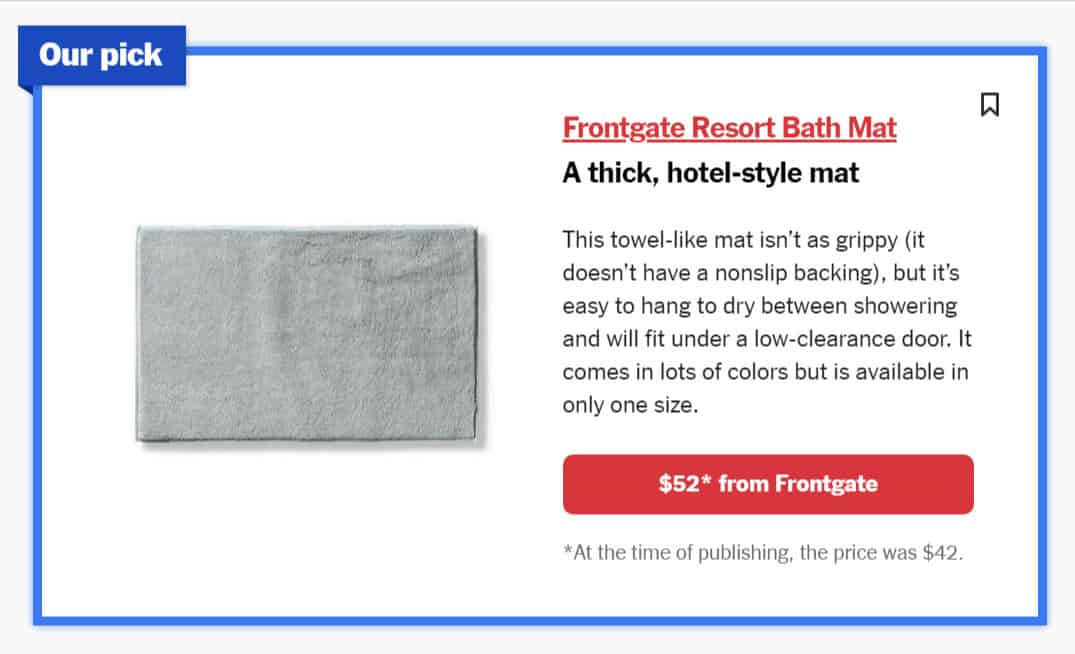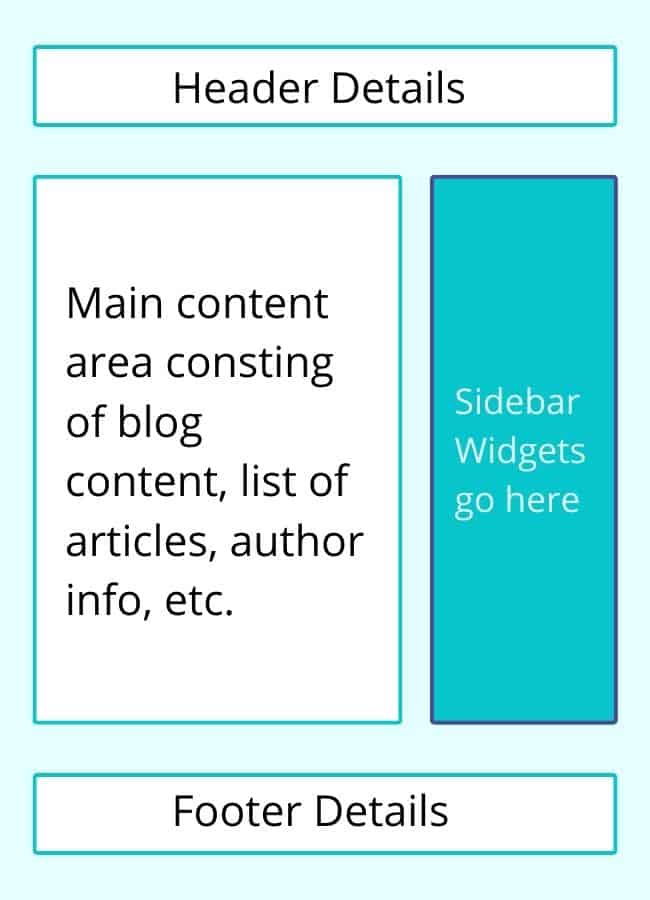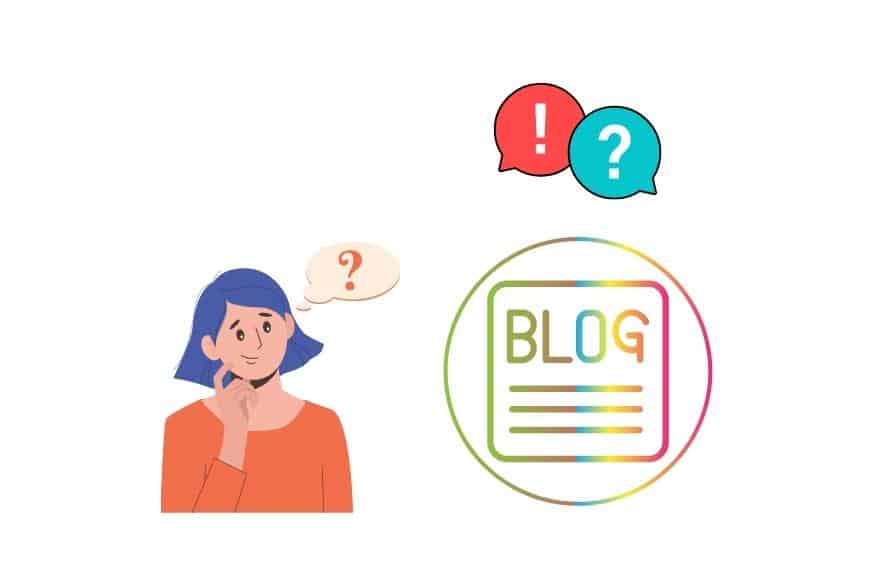A blog is a popular terminology today, but many people don’t really understand what exactly it is, and how it differs from websites.
In this article, we delve into the basics of a blog, including what you need to get started, the structure, types of blogs, and popular blogging platforms.
What is a Blog?

A blog is a website or a webpage where new entries are published on a regular basis. The entries are known as articles or blog posts. The entries are often in chronological order, where the latest articles are listed first.
While blogs started as personal online journals, where writers used to share their experiences, today, most blogs are information-rich. Personal blogs are still around, but the focus of blogging has shifted completely to serve three main purposes:
- Educate readers on given topics
- Attract customers to business websites
- Convert prospects into customers
Evolution of blogging
The first blog hit the web in 1994, yet blogs have evolved tremendously three decades later.
The first blog, which is still around today, is links.net, founded by Justin Hall, an American journalist, and entrepreneur.
The blog was a collection of useful links that Justin posted on his website, Justin’s Links from the Underground.
The term blog wasn’t mainstream until the late ’90s. The original iteration was weblog, coined by John Barger.
As blogs started becoming more popular, people started to drop the ‘we’ in the weblog, hence popularizing the term blog. Later on, ‘blog’ was an official English word.
Fast forward to a few years later, and blogs have become vital resources that help people in various aspects of life, including:
- Understanding complex academic topics
- Making purchase decisions
- Brainstorming ideas
- Finding inspiration
- Soliciting for a cause
- Championing change
To a larger extent, the evolution of blogs has been influenced by the algorithmic changes by major search engines like Google and the dynamics of today’s much-informed reader.
Types of Blogs
There are different types of blogs that exist today, but a majority of them fall into one of the following categories:
1) Niche Blogs
These blogs cover a specific topic extensively. Major niches include beauty, fashion, food, and tech.
Niche blogs appeal to given demographics, ethnic groups, age groups, or a specific industry.
2) Affiliate Blogs
These are blogs that exist majorly to promote affiliate products. As such, they are also niched to a specific topic, or even a specific product or product category.
Majority of the posts in affiliate blogs are product reviews, deals, buying advice, alternative posts, and comparison posts.
You are also likely to see affiliate product boxes throughout the websites:

Examples of successful affiliate blogs include:
- The Wirecutter, a home appliance review blog now owned by The Newyork Times.
- Consumer Search: An affiliate website producing consumer-driven reviews on various gadgets and other products around tech, kitchen, home and garden, fitness, etc.
3) Tutorial Blogs
Tutorial blogs are blogs that focus on giving information on how to go about a given product or solving a given problem. These are resource-heavy websites, and often require industry experts to develop content.
An example of a tutorial blog website is W3schools, a blog producing tutorials on programming languages such as Javascript, PHP, CSS, etc.
The Blog Structure
The blog consists of a simple structure, that often includes four components:
- The header: Where the site title/logo and the navigation links are housed.
- The main content area
- The sidebar
- The footer

The structure above is a representation of the layout of a blog. Each component serves a specific purpose, including displaying the main content, recommending more reads, and outlining more information about the blog and the author.
Can anyone start a blog?
You have a great idea for a blog, but you’re not sure if you can make it happen.
A lot of people think that starting a blog is hard work and that only certain people can do it—that’s simply not true. Anyone with an idea and the free time to write about it can start blogging!
The fact is:
- You don’t need to be a writer. You don’t need to be creative or artistic either; your content could be as simple as lists or photos with captions and hashtags
- You don’t need any technical skills at all—just use Google Docs or Microsoft Word to write your article and then copy-paste to WordPress or other CMS you are using, tweak formatting, and press ‘publish!’
Of course, there are some critical skills you need to be a successful blogger such as the ability to do extensive keyword research to unravel content gaps, coming up with an effective keyword strategy, and optimizing your blog posts for on-page SEO; but these skills are easy to learn.
What do you need to blog?
To start, maintain and continuously update your blog, you need a few things:
- A computer with internet access
- A domain name: This is the home address of your blog. You need to register it from a domain registrar such as Namecheap
- A web hosting service: For your blog to be accessible online, you need a web hosting service. We recommend Bluehost, as its shared hosting plan is quite affordable and their Cpanel is easier to use even for beginners.
- A blogging platform like WordPress (Content Management System). Bluehost makes it so easy to install WordPress on your site with their 1-click WordPress install feature.
- You’ll also need an email address where you can communicate with people who comment on your blog posts or send you emails—and of course, it needs to be one that’s connected with the domain name of your website (the second half of www-dot-something). I recommend using a service like Google Apps for Work (formerly G-suite) as it includes Gmail business accounts under your domain. Get a professional business email for just $6/month.
Blogging FAQs
For those who are new to blogging, it can be a bit confusing. So let’s clear some things up! We’ve compiled our most frequently asked questions about blogging into one easy-to-read guide.
Here are our top FAQs on blogging:
-
What is blogging and how does it work?
Blogging is a process of updating a blog with new content, and often involves steps such as topical research, content writing, editing, proofreading, publishing, and optimizing blog posts.
-
Who is a blogger?
A blogger is a person who owns and maintains a blog. Thus, a blogger can be anyone with a passion for writing and sharing their thoughts. Bloggers are usually passionate about their topics, whether they are experts or beginners in the field. Blogs may be written by individuals or groups of people.
-
How Do Bloggers Make Money
Bloggers make money in a variety of ways:
Advertising: The majority of bloggers are supported by advertising. You may have seen ads on the sidebar or at the bottom of web pages, (banner ads.) Bloggers get paid when someone clicks on those ads.
Affiliate marketing: Bloggers are paid a commission for successful sales they refer to through product recommendations on their blogs. Some companies offer this service automatically; others require approval before working with them (so make sure any potential partnerships are on the up and up).
Other ways through which bloggers make money from their blogs include sponsorships or promoted content, digital products, and print-on-demand services.
-
Is blogging still profitable in 2022?
Yes! Blogging is still a great way to make money.
In fact, blogging has been around for decades and remains one of the most successful ways for businesses to promote themselves online. If you’re looking for new ways to share your knowledge with others and build an audience (and make money), blogging is a great option.
-
What is the difference between a blog and a website?
A blog is a type of website consisting of a collection of posts, or “blog posts.” A website is a collection of web pages. Blogs were originally used to create content for search engines and other websites, but now they are often used as their own standalone website.
-
Why is blogging so popular?
Blogs are popular because they give you the opportunity to share your knowledge and expertise, build your personal brand, make money from your blog and connect with people who have similar interests to you.
-
How long does it take to start earning an income from blogging?
You can expect to take at least 6-12 months of consistent blogging before you can earn your first $1000 from your blog. How long it takes to start earning an income depends on a number of factors, including your niche, content strategy, publishing frequency, and topical competitiveness, amongst others.
Some bloggers have been able to achieve a full-time income within their first year; others have taken three or more years.
-
Which blogs make the most money?
Here’s the thing: there is no one-size-fits-all answer to this question.
The amount of money you make from blogging depends on your niche, how much time and effort you put into it, what kind of audience you have, etc.
However, there are some types of blogs that do tend to have higher revenue than others. These blogs include finance, tech, food, fashion, and automotive blogs
-
Is Blogging worth it?
The short answer is yes, blogging can be worth it. If you have been reading this article and wondering if you should start a blog, then the chances are that you already know that there are many benefits to running your own online publishing platform.
As with any venture, it’s important to determine what your goals are before investing time and resources into starting up a new business. If making money is one of your main targets for launching a blog then there are ways in which this can be achieved through affiliate marketing and advertising, but only if done correctly!
If building your brand is more important than making money from day 1 then blogging may well be worth it for you as well – after all nothing builds recognition better than creating authoritative content within a given industry.
-
How much does it cost to start a blog?
A simple blog on shared hosting can cost you around $100 on average, for your first year. The costs of starting a blog vary depending on factors such as blogging platform, type of web hosting, themes and plugins, and whether you are outsourcing a custom web development service.
The average cost of starting a WordPress blog is around $30 per month – this includes domain name registration and hosting fees. You can also get started with free services like Blogger or Medium, which offer limited features and restricted control but are free.
Conclusion
I hope you are now familiar with what a blog is, and what it isn’t. Blogging is a great way to grow your business, so I recommend this as an additional channel if you don’t have it already under your bonnet.


